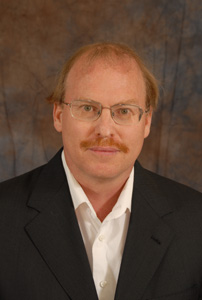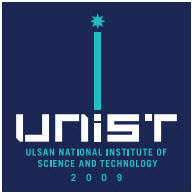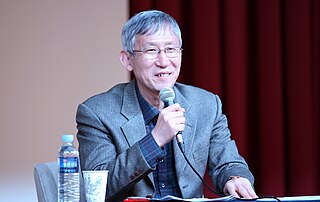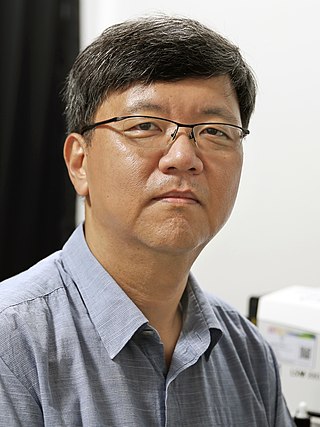Related Research Articles

Robert Howard GrubbsForMemRS was an American chemist and the Victor and Elizabeth Atkins Professor of Chemistry at the California Institute of Technology in Pasadena, California. He was a co-recipient of the 2005 Nobel Prize in Chemistry for his work on olefin metathesis.
Craig Jon Hawker is an Australian-born chemist. His research has focused on the interface between organic and polymer chemistry, with emphasis on the design, synthesis, and application of well-defined macromolecular structures in biotechnology, microelectronics, and surface science. Hawker holds more than 45 U.S. patents, and he has co-authored over 300 papers in the areas of nanotechnology, materials science, and chemistry. He was listed as one of the top 100 most cited chemists worldwide over the decade 1992–2002, and again in 2000–2010.

Donna J. Nelson is an American chemist and professor of chemistry at the University of Oklahoma. Nelson specializes in organic chemistry, which she both researches and teaches. Nelson served as a science advisor to the AMC television show Breaking Bad. She was the 2016 President of the American Chemical Society (ACS) with her presidential activities focusing on and guided by communities in chemistry. Nelson's research focused on five primary topics, generally categorized in two areas, Scientific Research and America's Scientific Readiness. Within Scientific Research, Nelson's topics have been on mechanistic patterns in alkene addition reactions and on Single-Walled Carbon Nanotube (SWCNT) functionalization and analysis, yielding the first COSY NMR spectrum of covalently functionalized SWCNTs in solution. Under America's Scientific Readiness, she focuses on science education and impacting science by considering its communities; this includes classroom innovations and correcting organic chemistry textbook inaccuracies, on ethnic and gender diversity among highly ranked science departments of research universities, and on improving the image and presentation of science and scientists to the public.
Tobin Jay Marks is an inorganic chemistry Professor, the Vladimir N. Ipatieff Professor of Catalytic Chemistry, Professor of Material Science and Engineering, Professor of Chemical and Biological Engineering, and Professor of Applied Physics at Northwestern University in Evanston, Illinois. Among the themes of his research are synthetic organo-f-element and early-transition metal organometallic chemistry, polymer chemistry, materials chemistry, homogeneous and heterogeneous catalysis, molecule-based photonic materials, superconductivity, metal-organic chemical vapor deposition, and biological aspects of transition metal chemistry.
Carl Shipp "Speed" Marvel was an American chemist who specialized in polymer chemistry. He made important contributions to U.S. synthetic rubber program during World War II, and later worked at developing polybenzimidazoles, temperature-resistant polymers that are used in the aerospace industry, in fire-fighting equipment, and as a replacement for asbestos. He has been described as "one of the world's outstanding organic chemists" and received numerous awards, including the 1956 Priestley Medal and the 1986 National Medal of Science, presented by President Ronald Reagan.

Krzysztof "Kris" Matyjaszewski is a Polish-American chemist. He is the J.C. Warner Professor of the Natural Sciences at the Carnegie Mellon University Matyjaszewski is best known for the discovery of atom transfer radical polymerization (ATRP), a novel method of polymer synthesis that has revolutionized the way macromolecules are made.

Omar M. Yaghi is the James and Neeltje Tretter Chair Professor of Chemistry at the University of California, Berkeley, an affiliate scientist at Lawrence Berkeley National Laboratory, the Founding Director of the Berkeley Global Science Institute, and an elected member of the US National Academy of Sciences as well as the German National Academy of Sciences Leopoldina.

Rodney S. "Rod" Ruoff is an American physical chemist and nanoscience researcher. He is one of the world experts on carbon materials including carbon nanostructures such as fullerenes, nanotubes, graphene, diamond, and has had pioneering discoveries on such materials and others. Ruoff received his B.S. in chemistry from the University of Texas at Austin (1981) and his Ph.D. in chemical physics at the University of Illinois-Urbana (1988). After a Fulbright Fellowship at the MPI fuer Stroemungsforschung in Goettingen, Germany (1989) and postdoctoral work at the IBM T. J. Watson Research Center (1990–91), Ruoff became a staff scientist in the Molecular Physics Laboratory at SRI International (1991–1996). He is currently UNIST Distinguished Professor at the Ulsan National Institute of Science and Technology (UNIST), and the director of the Center for Multidimensional Carbon Materials, an Institute for Basic Science Center located at UNIST.

Ulsan National Institute of Science and Technology, is one of the four public universities in South Korea which are dedicated to research in science and technology, along with KAIST, GIST, UST, and DGIST. UNIST was founded in 2007 in response to growing demand for higher education in the Korean industrial capital of Ulsan, where world-renowned automotive, shipbuilding, petrochemical, and secondary cells industries are clustered. At the time of its foundation, UNIST was known for being the first national university in South Korea to be incorporated and thus administered by an independent board of trustees despite being funded by the central government.

The Charles Goodyear Medal is the highest honor conferred by the American Chemical Society, Rubber Division. Established in 1941, the award is named after Charles Goodyear, the discoverer of vulcanization, and consists of a gold medal, a framed certificate and prize money. The medal honors individuals for "outstanding invention, innovation, or development which has resulted in a significant change or contribution to the nature of the rubber industry". Awardees give a lecture at an ACS Rubber Division meeting, and publish a review of their work in the society's scientific journal Rubber Chemistry and Technology.
The Melvin Mooney Distinguished Technology Award is a professional award conferred by the ACS Rubber Division. Established in 1983, the award is named after Melvin Mooney, developer of the Mooney viscometer and of the Mooney-Rivlin hyperelastic law. The award consists of an engraved plaque and prize money. The medal honors individuals "who have exhibited exceptional technical competency by making significant and repeated contributions to rubber science and technology".

Kim Kimoon is a South Korean chemist and professor in the Department of Chemistry at Pohang University of Science and Technology (POSTECH). He is the first and current director of the Center for Self-assembly and Complexity at the Institute for Basic Science. Kim has authored or coauthored 300 papers which have been cited more than 30,000 times and he holds a number of patents. His work has been published in Nature, Nature Chemistry, Angewandte Chemie, and JACS, among others. He has been a Clarivate Analytics Highly Cited Researcher in the field of chemistry in 2014, 2015, 2016.

Kwang Soo Kim is a South Korean professor in chemistry, an adjunct professor in physics, and the director of Center for Superfunctional Materials (CSM), of Ulsan National Institute of Science and Technology (UNIST) in South Korea. He received his B.S. and M.S. degrees in Applied Chemistry from Seoul National University and also an M.S. degree in Physics from Korea Advanced Institute of Science and Technology (KAIST) (1975). He obtained his Ph.D. degree from University of California, Berkeley (1982). His research fields include Theoretical/Computational Chemistry/Physics and Experimental Nanosciences.

Yueh-Lin (Lynn) Loo is a Malaysian-born chemical engineer and the Theodora D. '78 and William H. Walton III '74 Professor in Engineering at Princeton University, where she is also the Director of the Andlinger Center for Energy and the Environment. She is known for inventing nanotransfer printing. Loo was elected a Fellow of the Materials Research Society in 2020.

Timothy M. Swager is an American Scientist and the John D. MacArthur Professor of Chemistry at the Massachusetts Institute of Technology. His research is at the interface of chemistry and materials science, with specific interests in carbon nanomaterials, polymers, and liquid crystals. He is an elected member of the National Academy of Sciences, American Academy of Arts and Sciences, and the National Academy of Inventors.

Steve Granick is an American scientist and educator. In 2023 he joined the University of Massachusetts-Amherst as the Robert Barrett Endowed Chair of Polymer Science and Engineering, with joint appointment in the Chemistry, Physics, and Chemical Engineering Departments after serving as director of the Institute for Basic Science Center for Soft and Living Matter, an interdisciplinary blue-sky research center in Ulsan, South Korea that pursues basic science research. Until 2015 he was professor at the University of Illinois at Urbana-Champaign. He is a member of the American Academy of Arts and Sciences and the U.S. National Academy of Sciences.

Iain McCulloch is Professor of Polymer Chemistry, in the Department of Chemistry, at the University of Oxford, UK, a fellow and tutor in chemistry at Worcester College, and an adjunct professor at King Abdullah University of Science and Technology (KAUST), Saudi Arabia, and a visiting professor in the Department of Chemistry at Imperial College London.
Andrew R. Barron is a British chemist, academic, and entrepreneur. He is the Sêr Cymru Chair of Low Carbon Energy and Environment at Swansea University, and the Charles W. Duncan Jr.-Welch Foundation Chair in Chemistry at Rice University. He is the founder and director of Energy Safety Research Institute (ESRI) at Swansea University, which consolidates the energy research at the University with a focus on environmental impact and future security. At Rice University, he leads a Research Group and has served as Associate Dean for Industry Interactions and Technology Transfer.

Sukbok Chang is a South Korean organic chemist. He is a distinguished professor in the Department of Chemistry at Korea Advanced Institute of Science and Technology (KAIST). He is also the director of the Institute for Basic Science (IBS) Center for Catalytic Hydrocarbon Functionalizations (CCHF). He was an associate editor on ACS Catalysis and has served on the editorial advisory boards of The Journal of Organic Chemistry, Journal of the American Chemical Society, and Accounts of Chemical Research. His major research interest is transition metal catalyzed C-H bond functionalization for the carbon-carbon bond and carbon-heteroatom bond formation.

Myung Kyungjae is a biologist researching DNA repair pathways at the molecular level. He is a Distinguished Professor at the Ulsan National Institute of Science and Technology (UNIST) and the Director of the IBS Center for Genomic Integrity located on the UNIST campus. He is on the editorial board of various peer-reviewed journals and is a member of multiple scientific societies.
References
- ↑ "Web of Science [v.5.32] – All Databases Results – AUTHOR: (Bielawski, Christopher W.)". Web of Science . Clarivate Analytics . Retrieved February 15, 2019.
Results: 278
- ↑ "Christopher W. Bielawski – Google Scholar Citations". Google Scholar . Retrieved January 29, 2019.
- ↑ "UNIST Christopher W. Bielawski – Patents". UNIST . Retrieved February 15, 2019.
- ↑ "Advisory Board". Polymer Chemistry. 2 (19). The Royal Society of Chemistry: 2891–3036. 2007. ISSN 1759-9962 . Retrieved January 31, 2019.
- ↑ "Professor Christopher Bielawski new member of Polymer Chemistry Advisory Board". Department of Chemistry. University of Texas at Austin. Retrieved January 31, 2019.
- 1 2 3 "Fellowship Awardees for 2000–2001" (PDF). Division of Organic Chemistry. American Chemical Society. November 2011. Retrieved February 12, 2019.
- ↑ N-Heterocyclic Carbenes: New Applications in Materials Chemistry (PDF). US-China Workshop for Early Career Chemical Scientists – Supramolecular Chemistry. October 26–31, 2009. p. 42. Retrieved February 12, 2019.
- ↑ Brantley, Johnathan N.; Bailey, Constance B.; Wiggins, Kelly M.; Keatinge-Clay, Adrian T. (March 20, 2013). "Mechanobiochemistry: harnessing biomacromolecules for force-responsive materials". Polymer Chemistry . 2013 (4): 3916–3928. doi:10.1039/C3PY00001J . Retrieved February 12, 2019.
- ↑ "Christopher W. Bielawski CV" (PDF). Center for Multidimensional Carbon Materials. Institute for Basic Science . Retrieved February 15, 2019.
- ↑ "Center for Multidimensional Carbon Materials – Chemistry – Research Centers". Institute for Basic Science . Retrieved February 15, 2019.
After a brief spell in the Max Planck Institute in Germany, director Ruoff returned to America where he held a number of positions before being announced as a director at IBS in late-2013.
- ↑ 이, 경진 (February 10, 2014). "UNIST, 올해부터 기존 7개 학부에서 9개 학부로 재편". 베리타스알파. Retrieved February 15, 2019.
- ↑ 임, 동식 (February 9, 2014). "UNIST 7개 학부서 9개 학부로 학제 개편". 베리타스알파. Retrieved February 15, 2019.
- ↑ Joo, Hyeon Heo (November 28, 2018). "Seven UNIST Researchers Named 'World's Most Highly Cited Researchers'". News Center. UNIST . Retrieved February 12, 2019.
- ↑ "IBS Places First Among Korean Institutions by Featuring 9 Scientists in List of Highly Cited Researchers". Institute for Basic Science . December 4, 2018. Retrieved February 12, 2019.
- ↑ 구, 미현 (November 27, 2018). "UNIST 교수 7명, '세계에서 가장 영향력 있는 연구자'에 선정". Newsis (in Korean). Retrieved February 12, 2019.
- ↑ Mitchell, Danny (July 13, 2016). "2016 The Most Cited Researchers in Materials Science and Engineering". MSE Supplies LLC. Retrieved February 15, 2019.
- ↑ Joo, Hyeon Heo (August 17, 2016). "UNIST Faculty Named among World's Most Cited Researchers". News Center. UNIST . Retrieved February 15, 2019.
- ↑ "UNIST Brochure 2017". UNIST . 2017. Retrieved February 15, 2019.
- ↑ "2012 Journal of Polymer Science Award in Honor of Christopher Bielawski". Polymeric Materials: Science and Engineering Division: Archival Website (through 2017). American Chemical Society . Retrieved February 15, 2019.
- ↑ "Dr. Christopher Bielawski selected for Defense Science Study Group". Department of CHemistry. The University of Texas at Austin. May 24, 2011. Retrieved February 15, 2019.
- ↑ "President Honors Outstanding Early-Career Scientists: Awardees include 20 scientists and engineers nominated by the National Science Foundation". National Science Foundation . July 13, 2009. Retrieved February 15, 2019.
- ↑ "Alumni News" (PDF). Department of Chemistry News. University of Illinois at Urbana-Champaign. Spring 2010. p. 14. Retrieved February 15, 2019.
- ↑ "Henkel Award for Outstanding Graduate Research in Polymer Science and Engineering". PMSE – Polymeric Materials: Science and Engineering Division. Retrieved February 12, 2019.
- ↑ "Graduate Research Fellowships – ACS Division of Organic Chemistry". Division of Organic Chemistry. American Chemical Society . Retrieved February 12, 2019.